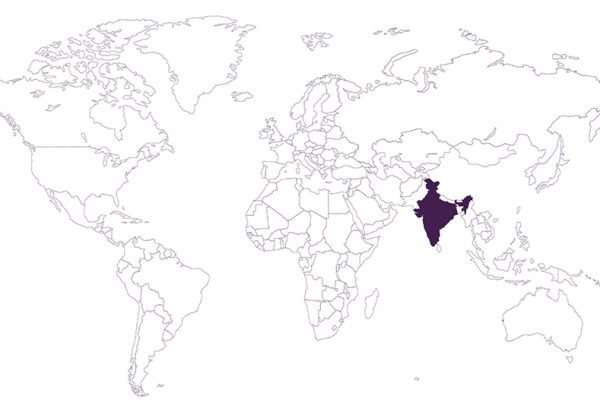
Some of the changes that the current healthcare crisis has brought about will bring lasting impact to India’s IT infrastructure and technology.
The COIVD-19 has affected airlines, manufacturers, retailers and financial services – all of whom are the biggest contributors to the Indian IT sector. While new projects may be delayed and discretionary spending is cut, most IT services by nature are necessary to operations. ET-ILC member companies like SAP and Hexagon’s Manufacturing Intelligence division are relying on recurring revenue and companies’ R&D spends to take them through this financial year.
In fact, Hexagon Manufacturing Intelligence, which works in the area of autonomous manufacturing and simulation software says 2020 could show some resilience later in the year. “Even auto, which has been one of the most heavily impacted because of the slowdown and makes up sizeable part of our revenues as a sector, is continuing to invest greatly in R&D. They’re getting ready for 2023 and 2024. This is the time that companies introspect and innovate. This is in fact a very high growth period for us,” says Sridhar Dharmarajan, EVP & MD – Hexagon Manufacturing Intelligence, India and MSC Software Indo-Pacific.
While R&D is the mainstay for Hexagon’s Design and Engineering business (MSC Software),for SAP it’s recurring revenue that is bringing stability. “70% of India’s GDP passes through SAP systems. Government infra and public services and consumer products give us a majority of our revenue. 70% of our revenue is secured as it comes through cloud renewals, multi-year licenses contracts and support which brings stability. The new bookings will mostly come from cloud adoption and new licenses and may get deferred from a short-term perview,” says Deb Deep Sengupta, President & MD, SAP India. NetApp, a hybrid cloud and data management company, says while they are ruling out growth for this financial year, their main business won’t be negatively affected. “It’s true that companies are spending very cautiously now but data management is essential. How much can you hold back on that? In fact, when cost-savings become a priority, the cloud business usually gains traction because it gives economic value.” says Anil Valluri,
As per IBEF, the Indian IT sector was valued at US$177 billion in 2019, which was a 6% increase year on year. While overall for the industry, 2020 growth may be flat, experts believe that by 2025 the industry will grow to $350 billion of which 38% will come from digital.
With many companies hopeful of bouncing back after the health crisis tides over, they’re taking the lay off pledge – promising to retrain and redeploy employees if necessary. This is crucial for the over 4 million people this Industry employs.
This sector already has a history of attracting significant investment. In the last decade it has attracted FDI worth $ 39.4 billion as per DPIT. PE investments in the sector were upwards of $ 2400 million in 2018. Firms like Infosys, Wipro, TCS and Tech Mahindra are increasingly moving towards services in AI, ML and blockchain. “Directionally most companies are moving towards more outcome based services, trying to move away from the headcount game. This will increase the confidence in international firms to invest more in India and beyond the traditional offshoring requirements.” says Saumitra Sehgal, Partner at consulting firm Roland Berger. Indian IT was in fact, not affected too much even by the slowdown because the US was robust, however that market has now softened due to the healthcare crisis and severe visa restrictions.
For this sector, there are essentially two challenges in the current scenario. One, is a demand side gap and that is causing some uncertainty because there is no end in sight. Since every country is dealing with the spread of the virus differently and halting economic activity to different extents; it’s not guaranteed that even post the India lockdown, international business will pick up. Global GDP growth which was earlier estimated to grow at close to 1%, has now been declared zero. The second issue is the supply side. Companies are not able to deploy full capacity or send managers onsite. Billable hours and productivity, both are suffering.
However, due to the sheer scope of the potential for India in the IT and digital space, the above shocks will be temporary. Deb Deep Sengupta of SAP says, “ Few Indian conglomerates, have truly adopted digital. They are using technology and better IT systems for operational purposes. But is digital being used to drive new ideas and products, to change their business models? There is a gap. We have a long way to go for that.” When it comes to automation, it’s a similar pattern. According to Hexagon Manufacturing Intelligence, less than 1% of India’s manufacturing firms have adopted autonomous methods where a factory unit’s hardware and software are integrated and machines can make intelligent decisions.
Earlier this year India’s largest IT firms had announced that close to 30% of their work is AI-ML related. For Hexagon and NetApp that number is close to 15%. Indian firms would really arrive in this space, when they’re able to apply some of these capabilities to larger societal issues. Some firms like NVIDIA already are. Folding@home (FAH or F@h) is a distributed computing project for simulating protein dynamics, including the process of protein folding and the movements of proteins implicated in a variety of diseases. “NVIDIA issued a call to action for PC gamers, globally, on March 13 to support folding@home, and fold against coronavirus. The response has been record-breaking, with tens of thousands of new users leveraging their GPU and CPU to help the project,” says Vishal Dhupar, Managing Director, South Asia, NVIDIA.
Some of the changes that the current healthcare crisis has brought about will bring lasting impact to India’s IT infrastructure and technology. “Those who were relying on their own data centre and staff will realize the importance of the cloud and a professional firm managing your systems. It will change the way firms think about IT infrastructure and how much should be spent on it. Many more firms will opt for cloud based solutions and will enable systems so that employees can function if they’re mobile or remote,” says Valluri.
The Coronavirus, in many ways, poses an unprecedented challenge to many firms. It has been tremendously damaging to people and businesses. But if organizations, the government and individuals collaborate, it can offer a great opportunity to innovate. Technology will play a key role in enabling collaboration and even in finding a cure. And firms that facilitate this collaboration and business going forward will emerge stronger once the virus is contained.









